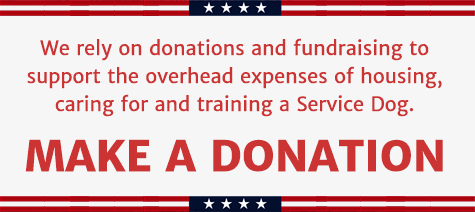252.355 Registry of persons with special needs; notice.--
(1) In order to meet the special needs of persons who would need assistance during evacuations and sheltering because of physical, mental, cognitive impairment, or sensory disabilities, each local emergency management agency in the state shall maintain a registry of persons with special needs located within the jurisdiction of the local agency. The registration shall identify those persons in need of assistance and plan for resource allocation to meet those identified needs. To assist the local emergency management agency in identifying such persons, home health agencies, hospices, nurse registries, home medical equipment providers, the Department of Children and Family Services, Department of Health, Agency for Health Care Administration, Department of Education, Agency for Persons with Disabilities, and Department of Elderly Affairs shall provide registration information to all of their special needs clients and to all persons with special needs who receive services. The registry shall be updated annually. The registration program shall give persons with special needs the option of preauthorizing emergency response personnel to enter their homes during search and rescue operations if necessary to assure their safety and welfare following disasters.
(2) The Department of Community Affairs shall be the designated lead agency responsible for community education and outreach to the public, including special needs clients, regarding registration and special needs shelters and general information regarding shelter stays.
(3) A person with special needs must be allowed to bring his or her service animal into a special needs shelter in accordance with s. 413.08.
(4)
(a) On or before May 31 of each year each electric utility in the state shall annually notify residential customers in its service area of the availability of the registration program available through their local emergency management agency by:
1. An initial notification upon the activation of new residential service with the electric utility, followed by one annual notification between January 1 and May 31; or
2. Two separate annual notifications between January 1 and May 31.
(b) The notification may be made by any available means, including, but not limited to, written, electronic, or verbal notification, and may be made concurrently with any other notification to residential customers required by law or rule.
(5) All records, data, information, correspondence, and communications relating to the registration of persons with special needs as provided in subsection (1) are confidential and exempt from the provisions of s. 119.07(1), except that such information shall be available to other emergency response agencies, as determined by the local emergency management director. Local law enforcement agencies shall be given complete shelter roster information upon request.
(6) All appropriate agencies and community-based service providers, including home health care providers, hospices, nurse registries, and home medical equipment providers, shall assist emergency management agencies by collecting registration information for persons with special needs as part of program intake processes, establishing programs to increase the awareness of the registration process, and educating clients about the procedures that may be necessary for their safety during disasters. Clients of state or federally funded service programs with physical, mental, cognitive impairment, or sensory disabilities who need assistance in evacuating, or when in shelters, must register as persons with special needs.
316.1303 Traffic regulations to assist mobility-impaired persons.--
Whenever a pedestrian is in the process of crossing a public street or highway and the pedestrian is mobility-impaired (using a guide dog or service animal designated as such with a visible means of identification, a walker, a crutch, an orthopedic cane, or a wheelchair), the driver of every vehicle approaching the intersection, as defined in s. 316.003(17), shall bring his or her vehicle to a full stop before arriving at such intersection and, before proceeding, shall take such precautions as may be necessary to avoid injuring such pedestrian. A person who is convicted of a violation of this section shall be punished as provided in s. 318.18(3).
(1) As used in this section and s. 413.081, the term:
(a) "Housing accommodation" means any real property or portion thereof which is used or occupied, or intended, arranged, or designed to be used or occupied, as the home, residence, or sleeping place of one or more persons, but does not include any single-family residence, the occupants of which rent, lease, or furnish for compensation not more than one room therein.
(b) "Individual with a disability" means a person who is deaf, hard of hearing, blind, visually impaired, or otherwise physically disabled. As used in this paragraph, the term:
1. "Hard of hearing" means an individual who has suffered a permanent hearing impairment that is severe enough to necessitate the use of amplification devices to discriminate speech sounds in verbal communication.
2. "Physically disabled" means any person who has a physical impairment that substantially limits one or more major life activities.
(c) "Public accommodation" means a common carrier, airplane, motor vehicle, railroad train, motor bus, streetcar, boat, or other public conveyance or mode of transportation; hotel; lodging place; place of public accommodation, amusement, or resort; and other places to which the general public is invited, subject only to the conditions and limitations established by law and applicable alike to all persons.
(d) "Service animal" means an animal that is trained to perform tasks for an individual with a disability. The tasks may include, but are not limited to, guiding a person who is visually impaired or blind, alerting a person who is deaf or hard of hearing, pulling a wheelchair, assisting with mobility or balance, alerting and protecting a person who is having a seizure, retrieving objects, or performing other special tasks. A service animal is not a pet.
(2) An individual with a disability is entitled to full and equal accommodations, advantages, facilities, and privileges in all public accommodations. This section does not require any person, firm, business, or corporation, or any agent thereof, to modify or provide any vehicle, premises, facility, or service to a higher degree of accommodation than is required for a person not so disabled.
(3) An individual with a disability has the right to be accompanied by a service animal in all areas of a public accommodation that the public or customers are normally permitted to occupy.
(a) Documentation that the service animal is trained is not a precondition for providing service to an individual accompanied by a service animal. A public accommodation may ask if an animal is a service animal or what tasks the animal has been trained to perform in order to determine the difference between a service animal and a pet.
(b) A public accommodation may not impose a deposit or surcharge on an individual with a disability as a precondition to permitting a service animal to accompany the individual with a disability, even if a deposit is routinely required for pets.
(c) An individual with a disability is liable for damage caused by a service animal if it is the regular policy and practice of the public accommodation to charge nondisabled persons for damages caused by their pets.
(d) The care or supervision of a service animal is the responsibility of the individual owner. A public accommodation is not required to provide care or food or a special location for the service animal or assistance with removing animal excrement.
(e) A public accommodation may exclude or remove any animal from the premises, including a service animal, if the animal's behavior poses a direct threat to the health and safety of others. Allergies and fear of animals are not valid reasons for denying access or refusing service to an individual with a service animal. If a service animal is excluded or removed for being a direct threat to others, the public accommodation must provide the individual with a disability the option of continuing access to the public accommodation without having the service animal on the premises.
(4) Any person, firm, or corporation, or the agent of any person, firm, or corporation, who denies or interferes with admittance to, or enjoyment of, a public accommodation or otherwise interferes with the rights of an individual with a disability or the trainer of a service animal while engaged in the training of such an animal pursuant to subsection (8), commits a misdemeanor of the second degree, punishable as provided in s. 775.082 or s. 775.083.
(5) It is the policy of this state that an individual with a disability be employed in the service of the state or political subdivisions of the state, in the public schools, and in all other employment supported in whole or in part by public funds, and an employer may not refuse employment to such a person on the basis of the disability alone, unless it is shown that the particular disability prevents the satisfactory performance of the work involved.
(6) An individual with a disability is entitled to rent, lease, or purchase, as other members of the general public, any housing accommodations offered for rent, lease, or other compensation in this state, subject to the conditions and limitations established by law and applicable alike to all persons.
(a) This section does not require any person renting, leasing, or otherwise providing real property for compensation to modify her or his property in any way or provide a higher degree of care for an individual with a disability than for a person who is not disabled.
(b) An individual with a disability who has a service animal or who obtains a service animal is entitled to full and equal access to all housing accommodations provided for in this section, and such a person may not be required to pay extra compensation for the service animal. However, such a person is liable for any damage done to the premises or to another person on the premises by such an animal. A housing accommodation may request proof of compliance with vaccination requirements.
(7) An employer covered under subsection (5) who discriminates against an individual with a disability in employment, unless it is shown that the particular disability prevents the satisfactory performance of the work involved, or any person, firm, or corporation, or the agent of any person, firm, or corporation, providing housing accommodations as provided in subsection (6) who discriminates against an individual with a disability, commits a misdemeanor of the second degree, punishable as provided in s. 775.082 or s. 775.083.
(8) Any trainer of a service animal, while engaged in the training of such an animal, has the same rights and privileges with respect to access to public facilities and the same liability for damage as is provided for those persons described in subsection (3) accompanied by service animals.
413.081 Interference with or injury to a service animal; penalties; restitution.--
(1) A person who, with reckless disregard, interferes with, or permits a dog that he or she owns or is in the immediate control of to interfere with, the use of a service animal by obstructing, intimidating, or otherwise jeopardizing the safety of the service animal or its user commits a misdemeanor of the second degree for the first offense and a misdemeanor of the first degree for each subsequent offense, punishable as provided in s. 775.082 or s. 775.083.
(2) A person who, with reckless disregard, injures or kills, or permits a dog that he or she owns or is in the immediate control of to injure or kill, a service animal commits a misdemeanor of the first degree, punishable as provided in s. 775.082 or s. 775.083.
(3) A person who intentionally injures or kills, or permits a dog that he or she owns or is in the immediate control of to injure or kill, a service animal commits a felony of the third degree, punishable as provided in s. 775.082, s. 775.083, or s. 775.084.
(4)
(a) A person who is convicted of a violation of this section, in addition to any other penalty, must make full restitution for all damages that arise out of or are related to the offense, including incidental and consequential damages incurred by the service animal's user.
(b) Restitution includes the value of the service animal; replacement and training or retraining expenses for the service animal and the user; veterinary and other medical and boarding expenses for the service animal; medical expenses for the user; and lost wages or income incurred by the user during any period that the user is without the services of the service animal.
413.082 Groups to recommend policies to improve access for individuals with disabilities.--
The Florida Americans with Disabilities Act Working Group and the Commission on Human Relations, jointly, are directed to provide to the Executive Office of the Governor recommendations that identify specific policies that the state can implement to ensure the effectiveness of this act and improve access for individuals with disabilities who are accompanied by service animals.
767.16 Bite by a police or service dog; exemption from quarantine.--
Any dog that is owned, or the service of which is employed, by a law enforcement agency, or any dog that is used as a service dog for blind, hearing impaired, or disabled persons, and that bites another animal or human is exempt from any quarantine requirement following such bite if the dog has a current rabies vaccination that was administered by a licensed veterinarian.
(1) A person who has been convicted of an offense other than a capital felony may be sentenced to pay a fine in addition to any punishment described in s. 775.082; when specifically authorized by statute, he or she may be sentenced to pay a fine in lieu of any punishment described in s. 775.082. A person who has been convicted of a noncriminal violation may be sentenced to pay a fine. Fines for designated crimes and for noncriminal violations shall not exceed:
(a) $15,000, when the conviction is of a life felony.
(b) $10,000, when the conviction is of a felony of the first or second degree.
(c) $5,000, when the conviction is of a felony of the third degree.
(d) $1,000, when the conviction is of a misdemeanor of the first degree.
(e) $500, when the conviction is of a misdemeanor of the second degree or a noncriminal violation.
(f) Any higher amount equal to double the pecuniary gain derived from the offense by the offender or double the pecuniary loss suffered by the victim.
(g) Any higher amount specifically authorized by statute.
Fines imposed in this subsection shall be deposited by the clerk of the court in the fine and forfeiture fund established pursuant to s. 142.01. If a defendant is unable to pay a fine, the court may defer payment of the fine to a date certain.
(2) In addition to the fines set forth in subsection (1), court costs shall be assessed and collected in each instance a defendant pleads nolo contendere to, or is convicted of, or adjudicated delinquent for, a felony, a misdemeanor, or a criminal traffic offense under state law, or a violation of any municipal or county ordinance if the violation constitutes a misdemeanor under state law. The court costs imposed by this section shall be $50 for a felony and $20 for any other offense and shall be deposited by the clerk of the court into an appropriate county account for disbursement for the purposes provided in this subsection. A county shall account for the funds separately from other county funds as crime prevention funds. The county, in consultation with the sheriff, must expend such funds for crime prevention programs in the county, including safe neighborhood programs under ss. 163.501-163.523.
(3) The purpose of this section is to provide uniform penalty authorization for criminal offenses and, to this end, a reference to this section constitutes a general reference under the doctrine of incorporation by reference.
last updated 21JAN2008
Official Florida State Website
Florida Attorney General
State of Florida
The Capitol PL-01
Tallahassee, FL 32399-1050
Citizens Services: 850-414-3990
Florida Relay/TDD: 800-955-8771
Florida Toll Free: 1-866-966-7226
ag.mccollum@myfloridalegal.com
Florida Commission on Human Relations
325 John Knox Road, Bldg. F, Suite 240
Tallahassee, FL 32303-4149
IN FL (800) 342-8170
Tel: (904) 488-7082
Fax: (904) 488-5291
TTY: (800) 955-8770





